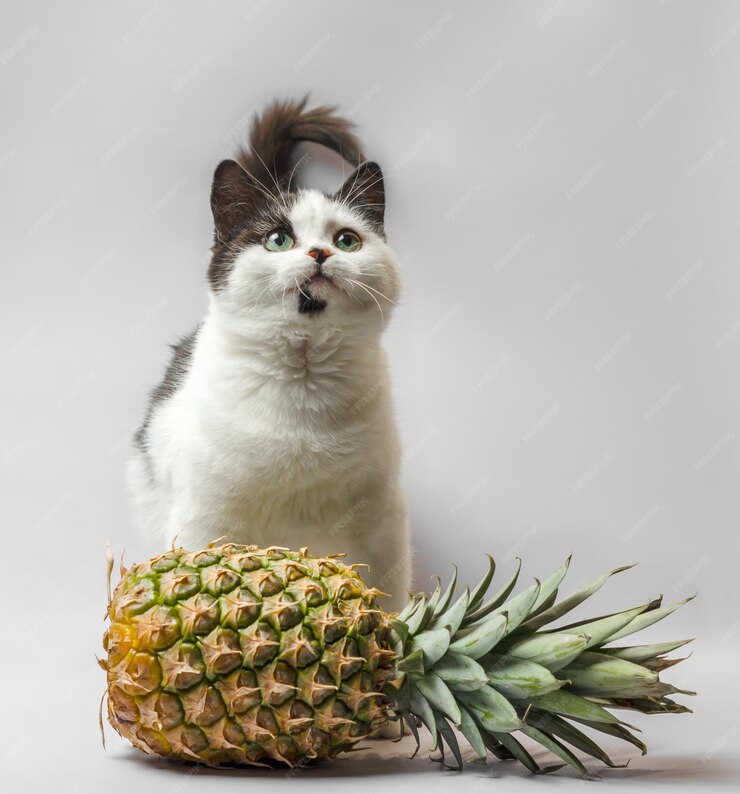Ever found your cat giving you that curious stare as you bite into a piece of juicy pineapple? It’s natural to wonder whether your feline friend can enjoy this tropical treat, too. As obligate carnivores, cats mainly thrive on meat, and sweet fruits like pineapple aren’t part of their natural diet. But some cats are adventurous enough to give it a try! So, can cats eat pineapple? Let’s peel back the layers and find out.
Can Cats Eat Pineapple?
Here’s the good news: yes, cats can eat pineapple. According to the ASPCA, pineapple is on the list of foods that won’t harm your cat. But before you offer your cat a bite, there’s one golden rule—moderation. Just because it’s safe doesn’t mean you should start dishing out pineapple chunks like kitty treats. Stick to small amounts, and everything should be fine.
Are Pineapples Good for Cats?
Pineapples are a powerhouse of nutrition for humans—packed with Vitamin C, fiber, and essential minerals. But what about cats? While we may benefit from this tropical fruit, cats don’t actually need an external source of Vitamin C. In fact, their bodies are pretty amazing and can produce their own! Read Can Cats Drink Milk?
Other nutrients like Vitamins A, B6, and potassium may seem beneficial, but if your cat is already on a complete and balanced diet, they’re getting all the nutrition they need. Read Stages Of Kidney Disease In Cats
When Can Pineapple Be Bad for Cats?
As with many things in life, too much of a good thing can turn bad—especially when it comes to feeding pineapple to cats. Large amounts of pineapple, or feeding it too frequently, can lead to upset stomachs, vomiting, or diarrhea. Even more concerning is the pineapple’s skin, leaves, and core, which are tough to digest and could cause digestive blockages.
Read
Can Cats Eat Garlic? The Risks You Need to Know
And if you were thinking of giving your cat canned pineapple or pineapple-flavored treats like yogurt or cake—hold up! These often contain loads of added sugar, which can lead to obesity and other health problems like diabetes. Your best bet? Stick to fresh, raw pineapple in small, manageable pieces.
Do Cats Even Like Pineapple?
This is where things get interesting. Unlike humans, cats don’t have a sweet tooth. They lack the taste receptors for sweetness, so they don’t experience that deliciously sweet flavor we love in fruits. But some cats are still intrigued by pineapple! Maybe it’s the texture of the fruit or its refreshing, juicy content that catches their attention. Read Can Cats Eat Popcorn?
It’s not uncommon for curious cats to nibble on new foods they see their owners eating—so don’t be surprised if your kitty wants to try a bite of pineapple just to see what the fuss is about! Read Also Can Cats Eat Cheese?
Can I Give My Cat Pineapple?
Yes, but remember—moderation is key. A small bite now and then won’t hurt, but it’s best to keep pineapple as an occasional treat rather than a staple in their diet. Always make sure you’re giving them fresh pineapple, free from the tough skin and leaves. And most importantly, never force your cat to eat something they don’t like. Some cats will love the novelty of pineapple, while others will simply walk away.
Read Also



